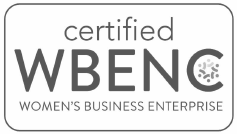Should your company or cause invest money in proprietary research? Will conducting focus groups, Omnibus polls or community surveys yield insights that will strengthen your brand’s story?
For businesses and nonprofits alike, standing out from the competition is an ongoing challenge. How do you command share of voice in a cluttered market? What will it take to prove to prospective clients you are the best fit for your business? How can you build a compelling case that will drive action amongst prospective donors?
While all great “asks” and pitches are built around a well-articulated story, there is something that can give you an edge, a bit of a competitive advantage, if you will. And, that is proprietary research.
Commissioning custom research with a third-party firm helps businesses and nonprofits to gather first-hand insights from their target audience (focus groups) or a representative statistic (polls and surveys) to reinforce their message. Case and point:
A few years ago, our client 2-1-1 ChildCare made note of a trend – as more people were losing their jobs, they were opening family daycares in their homes to generate income. Which made us wonder – was the economy making it harder to find quality child care? We commissioned a one question Omnibus poll with a research firm and found that an overwhelming number of adults (75%) believed the economy had made it harder to find quality child care. (You can learn more about this PR success story here.)
While we had anecdotal evidence around which to build our story at the onset, gathering third-party data to give a quantifiable proof point to our news gave the story legs and resulted in high quality editorial coverage for our client with media across the state.
Custom research can also help to localize national stories. Sometimes companies find that the market(s) in which they do business are defying national trends. This is another instance where commissioning custom research can strengthen your story and help to build a better news hook for your public relations program. For example, if construction in a specific asset class is booming in New York and faltering across most of the U.S., commissioning third-party research to survey construction companies in the New York market can provide data for pitching feature stories to both local business media and real estate trade media.
While custom research is an important asset for public relations, it can also help to strengthen your content marketing program. If you commissioned a research firm to perform a short 5-10 question poll, think how many statistics you could have to propel your blog posts, email marketing, whitepapers and other online marketing content. Not to mention how many social media updates you could also generate from that data and the associated content.
While polls and surveys can help to provide unique and quantifiable proof points for companies and causes alike, focus groups can help companies to hone their messaging, their go-to market strategies and the packaging of their product or service. What better way to know if your proposed concept will resonate with your target audience and drive purchases than to have an unbiased third-party ask them? Focus groups are most effective early on in the product development process – that is to say it’s easier to get feedback on a concept before you go to market and find it to be an underperforming component of your portfolio.
Investing in custom research can help for-profit and nonprofit organizations to take their marketing to the next level. With this unique, third-party data in hand organizations can differentiate themselves from the competition and illustrate a compelling need for their product or service.
Great content is the foundation of an effective inbound marketing, which educates online audiences through compelling content and smart calls-to-action. Learn how an inbound marketing program can boost your organization’s bottom line – and put the data from your research to good use.


